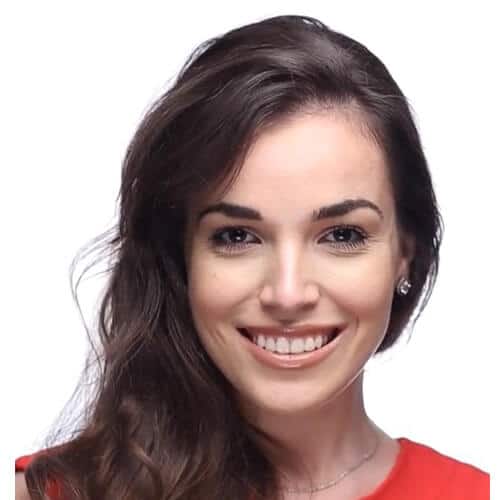-
What is Depression?
Depression is one of the most commonly experienced mental health issues, yet remains one of the most misunderstood. Despite what some people tend to believe, depression is a very real mental health condition that can have significant effects on not just those who suffer from it, but those in their support network, as well.
People with depression can experience a wide range of symptoms, including prolonged feelings of sorrow or distress, feelings of guilt and intolerance for themselves, and difficulties with sleep, socialising, and sex drive. Above all, depression is not the same as the feelings of grief and sorrow when we experience a bereaevement or loss, as these emotions are often completely rational, and healthy ways to react. Over time, we adjust to the new situation and we start to feel better. With depression, however, it can feel like there is no end in sight.
-
Symptoms of Depression
In the DSM-5, an individual must be experiencing five or more symptoms (during a 2 week period) to receive a diagnosis of clinical depression. One of these symptoms must include depressed moor, or a loss of interest of pleasure.
- Depressed mood most of the day, nearly every day.
- Markedly diminished interest or pleasure in all, or almost all, activities most of the day, nearly every day.
- Significant weight loss when not dieting or weight gain, or decrease or increase in appetite nearly every day.
- A slowing down of thought and a reduction of physical movement (observable by others, not merely subjective feelings of restlessness or being slowed down).
- Fatigue or loss of energy nearly every day.
- Feelings of worthlessness or excessive or inappropriate guilt nearly every day.
- Diminished ability to think or concentrate, or indecisiveness, nearly every day.
- Recurrent thoughts of death, recurrent suicidal ideation without a specific plan, or a suicide attempt or a specific plan for committing suicide.
-
Types of Depression
Major Depression (Clinical Depression)This is also known as unipolar depression, and constitutes all the symptoms outlined in the DSM-5. All depression types will overlap to some degree with major depression as it encapsulates the majority of experiences of those with depression.
Dysthymia (Persistent Depressive Disorder)Persistent depression is a long-term form of depression. It can last for years, with symptoms becoming more or less intense during certain periods. You may still experience difficulties maintaining relationships, but overall, you’ll feel as though you able to cope as over time you interpret your symptoms as being a part of your character.
Seasonal Affective DisorderSeasonal affective disorder usually affects those who live in the northern hemisphere where sunlight is severely restricted during the winter months. You’ll notice your symptoms increase and subside at the roughly same time each year with the passing of the seasons. Some of the most common symptoms include a loss of interest in activities, oversleeping, food cravings and relationships issues.
Bipolar DepressionThis type of depression consists of similar symptoms to unipolar depression, although it is experienced in the context of bipolar disorder. Bipolar disorder is characterised by episodes of extreme highs (mania) and extreme lows (depression) for a significant period of time. Unlike other types of depression, bipolar depression cannot be treated with SSRI’s or other antidepressants, as they may trigger a manic episode.
Situational DepressionThis is the most common form of the condition, as it relates to life changes and emotional challenges that have disrupted the balance in one’s life. Events such as the passing of close friends or family, relationship issues and financial troubles can all contribute as a triggering factor.
Postpartum DepressionPostpartum Depression, also known as the “baby blues” occurs shortly after childbirth in women. It typically lasts for around two weeks as the hormones in the body begin to regulate themselves. In the rarer cases, it can last much longer, with symptoms including a disconnection from your child, feeling irritable, anxiety and lack of interest in sex.
Psychotic DepressionIn some instances of depression, the effects can become so sever that psychotic symptoms may begin to develop psychotic symptoms (the loss of contact with reality), which can affect around 20 per cent of people who experience a major depressive episode in their life. The symptoms include disorganised thoughts, hallucinations and false beliefs.
Premenstrual Dysphoric Disorder (PMDD)Premenstrual dysphoric syndrome (PMDD) is a hormone-based mood disorder, a more severe form of premenstrual syndrome which affects around 5 per cent of women. Symptoms include anxiety and behavioural changes, which can begin up to around 7-10 days in the lead-up to a woman’s menstruation period.
Atypical DepressionAtypical depression can be hard to identify as it can leave in the presence of positive events happening, which can make it particularly hard to identify and address. Symptom includes disordered eating, poor body image, insomnia, feeling rejected and chronic fatigue.
-
Facts about Depression
1.Depression Doesn’t DiscriminateAccording to the World Health Organisation (WHO), around 264 million suffer from depression worldwide, which corresponds to roughly 15% of the global population. Depression can affect anyobe, regardless of your ethnicity, socioeconomic background, gender, and lifestyle.
2.Depression Doesn’t Have a Single CauseIn terms of causal factors, it can be quite a tricky condition to attribute to a specific cause or set of variables. At present, there is a general consensus that it’s caused by genetic hereditary deposition towards developing the condition, as well as environmental factors that can act as triggers.
Some of the main factors that can cause depression include:
- Brain Chemistry Imbalances
- Hormonal Changes
- Seasonal Changes
- Stress and Trauma
In the UK alone, up to 3% of children and 8% of adolescents suffer from the condition. It tends to be far more common in boys under the age of 10, however, by age 16 the pendulum swings the other way with girls making up the larger majority of cases. This can be due to a number of environmental triggers, such as bullying, coping with a parents divorce, or severe trauma such as abuse.
4.Women Have a Higher Rate of Depression Than MenStudies have shown that around 8.7% of women suffer from depression, compared to 5.3% of men. This may be down to factors such as biological predispositions, hormonal balances (from pregnancy or menstruation), everyday sexism and trauma. However, what statistics don’t always take into account is how forthcoming some men may be about their mental health, as there is far less stigma for a woman to admit depression than a man.
5.Depression Can Co-Occur with Many Physical ConditionsDepression has been found to co-occur with:
- Heart disease
- Strokes
- Cancer
- Diabetes
Depression occurs in 40-65% of people who’ve experienced a heart attack, 18-20% of those with coronary heart disease, and 10-27% of stroke survivors. Additionally, 1 in 4 people with cancer suffers from clinical depression, and those with adult onset diabetes have a 25% chance of developing depression.
6.Curing Depression Doesn’t Mean Choosing to be HappyAs people associate depression so strongly with sadness, there is a notion that you can easily ‘cheer yourself up’. The difference with depression is the loss of pleasure in activites that were once able to bring you joy and happiness. However, choice can factor into the recovery process, in regards to making the choice that you’re going to seek help.
-
Conventional Treatments for Depression
If you feel that you would benefit from counselling for depression, make sure that your therapist is a fully qualified psychologist (HCPC registered), CBT psychotherapist (BABCP accredited) or psychiatrist (RcPsych). Such a professional will be in the best position to provide you with the sort of help you need.
Cognitive Behavioural TherapyCognitive behavioural therapy (CBT) is a talked-based therapy that focuses on the concept that your thoughts, feelings and bodily sensations are all interconnected and provide a picture of your mental state of wellbeing. It has been highly successful in the past in treating both anxiety and depression as well as a whole host of other mental health issues.
Group CBTAlthough group CBT may seem like an intimidating prospect, sharing your issues with people you don’t know, that is where the strength of this form of therapy lies. Through empathising with the challenges of others you’re able to see that you’re not alone. It provides validation with the act of listening to others serving as a useful mirror for your own situation.
Interpersonal TherapyInterpersonal therapy (IPT) is a specialised form of psychotherapy that focuses on your relationships with those you’re closest to. The concept of this modality is that our interpersonal relationships are at the heart of many of our psychological problems. Studies have found it to be as effective as antidepressant medications for treating depression.
Psychodynamic TherapyWhile CBT and IPT are based on the idea of modifying thought processes and behaviours, Psychodynamic Therapy works on the premise of Freudian psychoanalysis. It is less structured than the previous modalities, with an open-ended structure, meaning that treatment can from 1 year to several years in severe cases of depression.
MedicationIn many cases, medication can be avoided when dealing with depression. However, when the quality of your life is being affected to the extent you can no longer work or take care of your responsibilities, antidepressants can be a solution, coupled with a course of talk therapy to address the root cause of your challenges.
-
Alternative Treatments for Depression
Art TherapiesCreative-based and other arts therapies serve as complementary therapies. If you’re able to find a craft that you respond well to whether it be music, painting, or writing, it can act as a huge boost to your wellbeing. The sense of fulfilment you get from completing a new piece of work can have a profound impact on the speed of recovery.
MindfulnessMindfulness has its roots in Buddhism. It is sometimes thought of as being only a form of meditation, but in actuality, it’s more a state of mind and attitude. You can apply mindfulness to all areas of your life. But where it comes in particularly useful for depression is by paying attention to how you’re feeling in response to your everyday activities.
HypnotherapyHypnotherapy has received a huge push in recent years, because of it’s ability to act on the subconscious mind. What can take other modalities such as IPT and CBT months to accomplish, hypnotherapy can often achieve in a single session. A study in 1995 had two control groups – one receiving just CBT with the other receiving CBT and hypnosis. After the investigation was concluded, it was found 75% of those who received both hypnosis and CBT experienced a greater improvement in their condition those who only received CBT. It gets right to the source of why you’re feeling the way you are, allowing you to move beyond limiting beliefs and traumas much quicker.
Peer SupportWhile not a form of treatment per se, peer support is a vital component of any successful recovery. The power of the internet and social media has made it so you can connect with like-minded people from all over the world with relative ease. You can join Facebook groups, and other online forums, but also don’t discount the services in your local area and the willingness of friends and family to help out.
Cranio Sacral TherapyCranio Sacral Therapy (CST) is a holistic treatment that works on the subtle layers of your energy body. It is energy work that also has a physical component. The practitioner applies very light touch to the body, which, by doing so, can release emotional blockages that are held within the body. Although it isn’t a recognised treatment for depression, it’s gaining increased attention for its effectiveness.
-
Where Can I Find Treatment for Depression?
If you would like to talk to someone about counselling or treatment for Depression in London or online, please get in touch with the Private Therapy Clinic on Whatsapp message at: +447511116565 email, chat bot or book online to arrange an appointment.
-
References
Healthline (3rd Jun 2020) Depression: Facts, Statistics, and You. Retrieved on 23rd July 2021 from, Link
Psychology Today (18th May 2021) Depression Central: Tell Me All I Need to Know About Depression. Retrieved on 23rd July 2021 from, Link
Very Well Mind (3rd Aug 2020) 7 Facts You Should Know About Depression. Retrieved on 23rd July 2021 from, Link
https://www.psycom.net/depression/major-depressive-disorder/dsm-5-depression-criteria
NHS. (10th Dec 2019) Treatment – Clinical Depression.Retrieved on 13th January, 2020 from, Link
WebMD. (10th Dec 2019) 10 Natural Treatments for Depression.Retrieved on 13th January, 2020 from, Link
Mental Health UK. (10th Dec 2019) Treatments for Depression.Retrieved on 13th January, 2020 from, Link
WebMD. (2019) Types of Depression. Retrieved on 11th January, 2020 from, Link
Healthline. (2019) 9 Types of Depression and How to Recognise Them. Retrieved on 11th January, 2020 from, Link
Beyond Blue. (2019) Types of Depression. Retrieved on 11th January, 2020 from,
Unk.com. (4th Jan 2018). Should Hypnosis Ever Be Used to Treat Depression? Retrieved on 14th November, 2019 from, Link
Related Services
- Acceptance and Commitment Therapy (ACT)
- Child Psychiatry
- Child Psychologists and Psychotherapists
- Clinical Supervision
- Cognitive Analytic Therapy (CAT)
- Cognitive Behavioural Therapy (CBT)
- Compassion Focused Therapy (CFT)
- Corporate Wellbeing
- Counselling London, UK and Online
- Couples Therapy
- Dynamic Interpersonal Therapy (DIT) & Interpersonal Therapy (IPT)
- Family Therapy
- Free Psychological Tests
- Gestalt Therapy
- Integrative Therapy
- Jungian Therapy
- Mindfulness
- Neuro-Linguistic Programming (NLP)
- Online Therapy
- Person-Centred Therapy
- Play Therapy
- Psychiatry Services
- Psychoanalytic Therapy
- Psychodynamic Psychotherapy
- Psychological Testing and Evaluation
- Psychological Tests & Assessments for Expert Witness and Medico-Legal Use
- Psychologist
- Psychotherapy
- Schema Therapy
- Short-term Dynamic Psychotherapy (ISTDP)
- Solution-focused Therapy
Related Issues
- Addiction Treatment
- Anorexia
- Anxiety Treatment
- Attention Deficit Disorder ADHD/ADD
- Bereavement
- Binge Drinking
- Binge Eating Disorder
- Bipolar Disorder Treatment
- Borderline Personality Disorder (BPD)
- Dementia Assessment
- Dissociative Identity Disorder (DID)
- Eating Disorders
- Emotional difficulties
- Generalised Anxiety Disorder (GAD)/ Worry
- Insomnia Treatment
- Mood Related Difficulties
- Obsessive Compulsive Disorder Treatment
- Personality Disorders (PD)
- Psychological Treatment for Medical Trauma
- Relationship Issues
- Self-esteem related issues
- Sleep Disorders
- Social Anxiety Treatment
- Substance Abuse Treatment






















